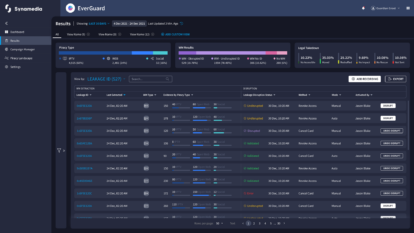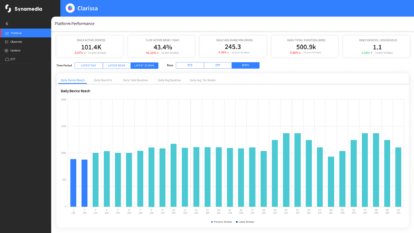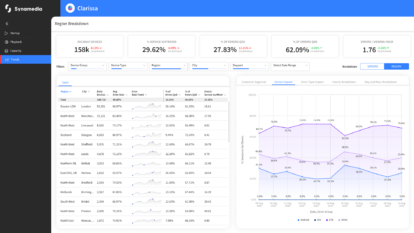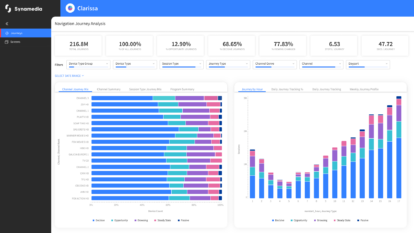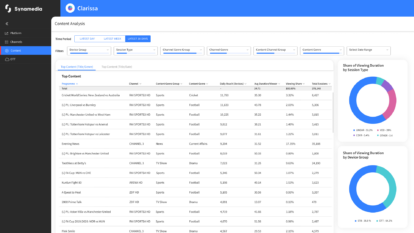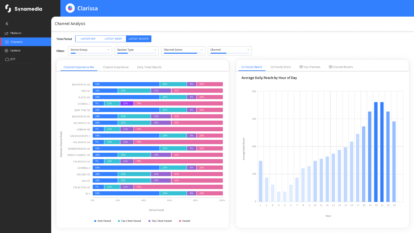Find out how Clarissa can help you optimize your service with a free demo
Use the data your subscribers surface to make smart, proactive improvements to your platform
Get a clear view of experience and engagement and better understanding of what’s working for your customers.
Surface trends in errors that can be key to optimising your service strategy.
Get a reliable view of content ROI, Average Revenue Per User, and subscriber consumption
Request your free 30-day trial to see what Clarissa can reveal about your customers.
Have questions? Contact our solutions expert for a demo walk-through, and more information.
